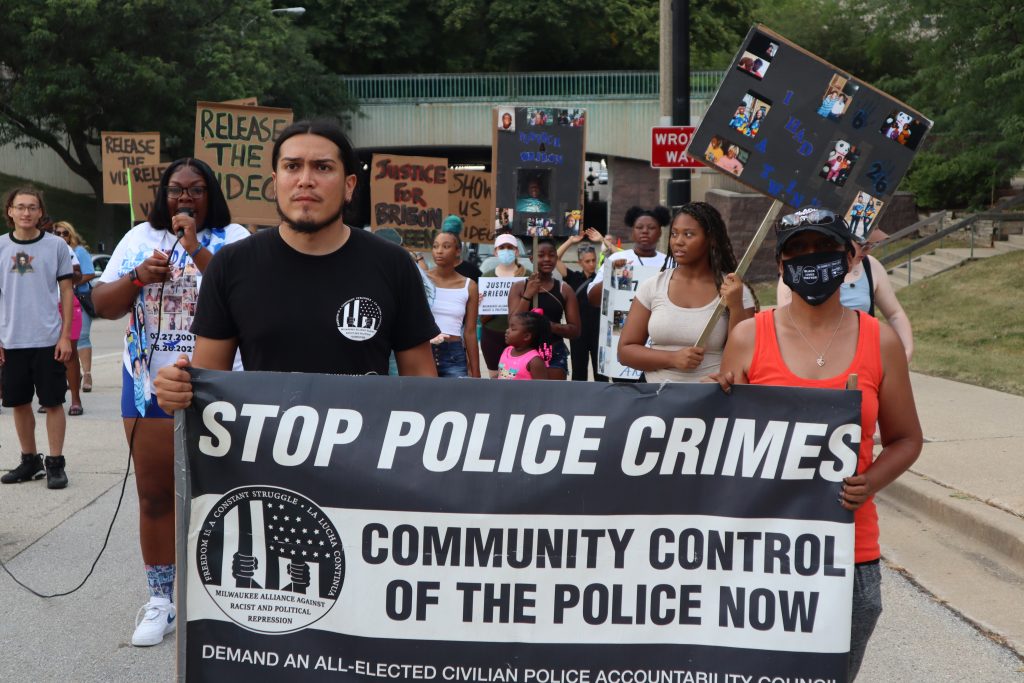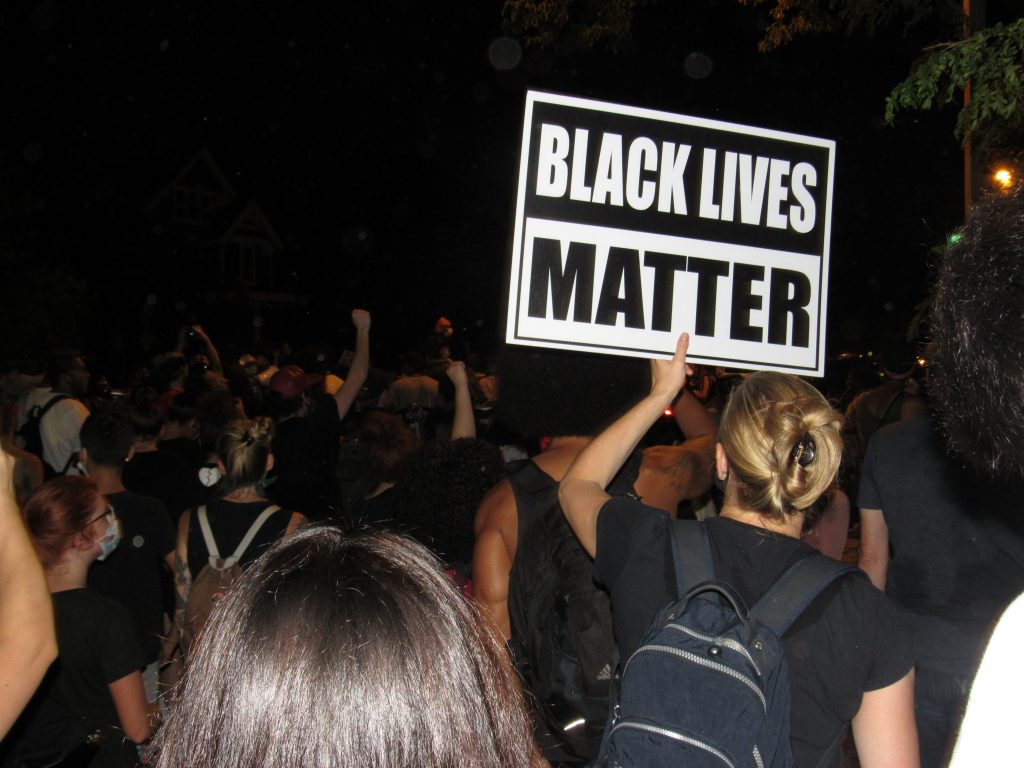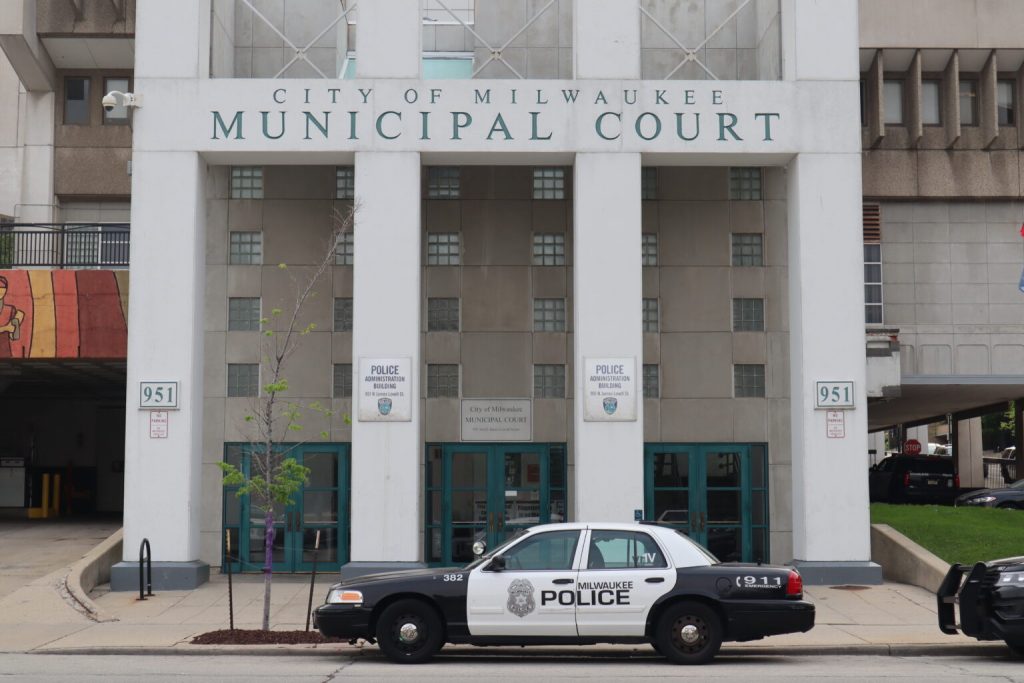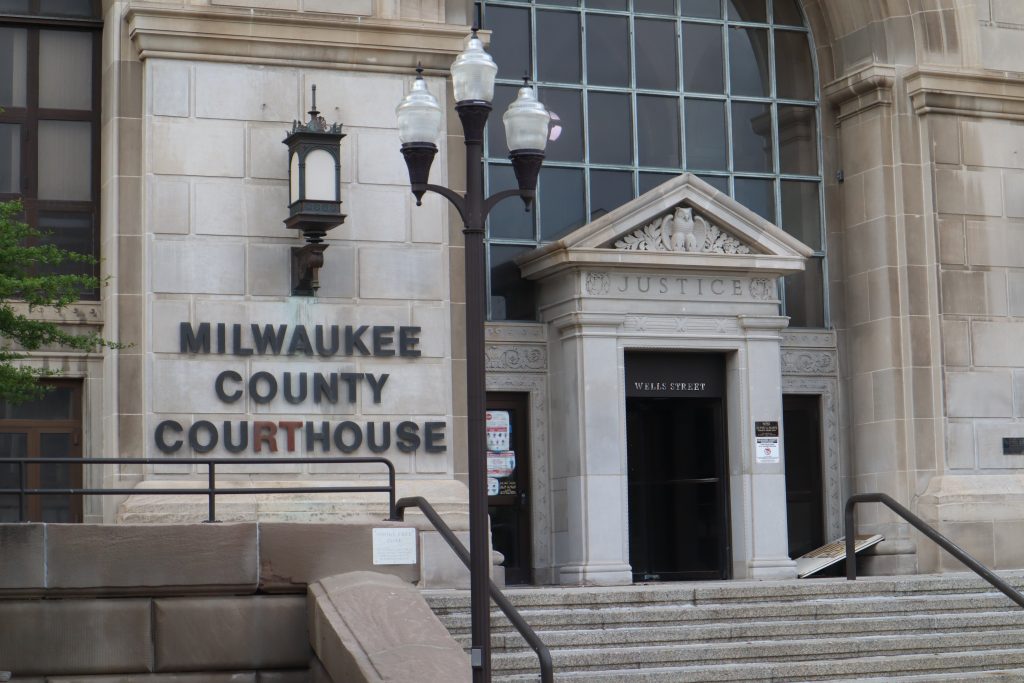ACLU Urges Citizen Oversight of Police Surveillance
Pushes CCOPS ordinance which requires public hearing for any new or existing technology.
“You don’t know when privacy will matter,” Jon McCray Jones, a policy analyst at the American Civil Liberties Union of Wisconsin, told Wisconsin Examiner. “You don’t know what will be criminalized in America.” McCray Jones was discussing concerns about how surveillance by police affects communities. In many Wisconsin cities, efforts by police to purchase and deploy surveillance technology goes unchallenged and unnoticed. McCray Jones and other privacy advocates want to change that.
Although federal agencies have vast capabilities to monitor citizens, local law enforcement also shouldn’t be underestimated. “Local police departments have become miniature NSA’s,” said McCray, referring to the National Security Agency, which monitors, intercepts, and collects data on a global scale.
Block by block in cities like Milwaukee, a powerful and in many ways integrated surveillance network monitors all sorts of activity by citizens. ShotSpotter audio sensors detect loud noises like gunshots and narrow down their locations. Crime analysts and detectives funnel social media data into detailed profiles of people and affinity groups. Facial recognition-equipped cameras glare at passersby, or scan license plates ready to issue an alert whenever a driver placed on a “hot list” is sighted. A phone call, rather than connecting to a known cell tower, just might connect to a cell site simulator used by police to track location, or intercept other data. Or perhaps police are using PenLink software to capture live content including phone calls and text messages. Overhead, a drone piloted by any number of local agencies may buzz past on its way back to a fully equipped surveillance van.
“Law enforcement doesn’t want us to know the type of tools that they’re using to peek into our private lives,” McCray Jones told Wisconsin Examiner. “And I think that becomes a recipe for misuse when you look at how facial recognition and other surveillance has been used in other municipalities around the country.” Examples of law enforcement officers utilizing agency tools for personal reasons have emerged in some cases. In El Paso, an officer utilized police databases to keep tabs on someone spending time with his ex-girlfriend. Women in Louisville were blackmailed with their own private pictures by an officer who used a software called Accurint to access their Snapchat accounts. And in Miami-Dade, an officer used Apple Airtags to track his ex-girlfriend.
As technology improves, there are also deeper systemic concerns. Nearly a decade ago, investigations by the ACLU of Wisconsin and electronic privacy advocates found that the Milwaukee Police Department (MPD) had hidden its use of cell tracking technology from judges. When questioned about how they’d found a suspect, officers used “oddly vague language,” the ACLU of Wisconsin stated at the time. Officers even went as far as to testify that the information came “from an unknown source.” During the George Floyd-inspired police reform protests four years ago, law enforcement agencies traded intelligence, created lists of people associated with protests, and conducted online investigations. Throughout the summer of 2020, people who regularly attended protests reported feeling as though they were under surveillance.

Protesters gather at the Milwaukee County Courthouse to call for transparency in the death of Breon Green. (Photo | Isiah Holmes)
“This is why we need oversight,” said McCray Jones. “There’s a lot of power that comes in collecting data. And we need to know what law enforcement is doing with it just like we need to know what Google is doing with it. We need to know who they’re sharing it with.” McCray Jones is concerned about data sharing among law enforcement agencies through fusion centers, which are a kind of intelligence hub for law enforcement.
When questioned about fusion center oversight during a town hall in 2021, MPD Chief Jeffrey Norman said, “no one agency is actually in control of all the rules.” The chief added that, “it’s not within my directive or purview to have complete oversight in regards to their activities.”
One of McCray Jones’s biggest concerns is how people can, overnight, become targets for surveillance due to a sudden change in law. Now that federal abortion protections have been overturned and gender-affirming care has come under increasing attack, McCray Jones envisions a future where state and local authorities could use fusion centers to track people who cross state lines for health care that is illegal in their home states. “Who’s to say that people from Indiana and Missouri who come to Wisconsin to seek these types of health care, they get surveilled here, the data gets uploaded to a fusion center, and then they get arrested in their home states?” McCray Jones said. “This is why we need to set up the infrastructure now that stops police surveillance, so that we don’t have to worry about these situations in two to three years, because we don’t know what the political atmosphere will be like.”
Surveillance in American history is violence
– Jon McCray Jones, policy analyst for the ACLU of Wisconsin
Surveillance can even stimulate, or lead to violence, McCray Jones says. Such as FBI’s Counterintelligence Program (COINTEL PRO) focused on the civil rights movement, the anti-war movement, and the youth counter culture. The program was uncovered only after a group of activists calling themselves The Citizens Commission to Investigate the FBI broke into a local federal office in 1971, and stole records which offered a glimpse into the program.
“You don’t need to look any further than COINTEL PRO,” McCray Jones told Wisconsin Examiner. “COINTEL PRO’s entire lesson [was] about how local police surveillance ends up becoming violence on marginalized communities especially Black, brown, and LGBTQ communities that are politically active. And I think that type of history is not told as much as it should be. Because COINTEL shows how local police departments, in combination with the federal government and the FBI, crack down and brutalize Black communities.”

Protesters gather in Kenosha the second night of protests on August 24th, 2020. (Photo | Isiah Holmes)
McCray Jones sees CCOP’s ordinances as a way to pull back the veil underneath which police intelligence operations have, in the past, sprawled out of control. If passed by Milwaukee’s common council, the ordinance would apply only to MPD and not other law enforcement in the county, such as the sheriff’s office. However, it would require a public hearing for every piece of surveillance technology used by MPD whether gifted by a police association, lobbied for by a police union, shared by another agency, or acquired through federal programs. The dialogue could also lead to greater scrutiny of police intelligence units like STAC, the Milwaukee Sheriff’s “MATRIX Group,” Wauwatosa PD’s Special Operations Group, as well as the High Technology Unit, Virtual Investigations Unit, HIDTA, the Confidential Source Team, anti-gang units, and others within Milwaukee PD.
“I think that’s the beauty of the CCOPS ordinance is that it puts uniformity to a system that doesn’t have any uniformity or accountability,” McCray Jones told Wisconsin Examiner. “And it gives a way that elected officials and community leaders get to make sure that they have a voice on any technology that is used by the local police departments.”
ACLU urges citizen oversight of police surveillance in cities like Milwaukee was originally published by Wisconsin Examiner.





















We’re living in a “Police State” literally & figuratively.